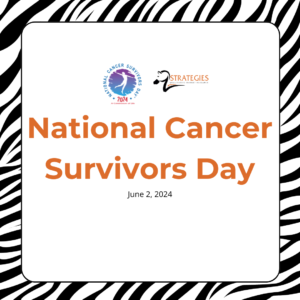A few weeks ago, Zebra Strategies attended a film screening that highlighted the maternal health struggles of Black women. The film depicts the cumulative effects of the chronic stress Nina experiences as a regular part of her daily routine.
In “Toxic, a Black Woman’s Story,” Nina, an expecting Black mother in her second trimester, faces a multitude of challenges. Despite expressing concerning symptoms to her doctor, Nina finds herself dismissing her well-being, a common occurrence among Black pregnant individuals navigating microaggressions and medical racism. Nia’s interactions with her doctor reveal a distressing lack of empathy and concern, with instances of gaslighting and dismissal of her symptoms, later leading to a miscarriage. Nina’s story raises important questions about the respect and dignity afforded to Black individuals seeking medical care.
Nina’s story highlights the pervasive nature of racial discrimination in various aspects of life, from workplace microaggressions to systemic racism in educational and social settings. Instances such as the cashier at the Deli assuming Nina used SNAP benefits based on her race underscore the everyday challenges faced by Black individuals. Moreover, the tragic loss of a child, potentially preventable with adequate healthcare support, serves as a stark reminder of the life-and-death consequences of disparities in access to quality care.
Amidst these struggles, Nina’s journey highlights the importance of self-advocacy and empowerment. Pregnant marginalized individuals need to recognize their right to refuse inadequate care and seek support elsewhere, something often hard to practice. Most patients feel alone throughout their pregnancies or don’t have the support needed to advocate for themselves. By honoring voices like Nina’s and advocating for systemic change, we can strive towards a future where all individuals, regardless of race or background, receive the quality maternal healthcare they deserve.
Advocating for maternal health and improving the birthing experience is crucial for ensuring the well-being of both mothers and babies. Maternal health encompasses a broad spectrum of care, from prenatal to postnatal stages, and extends beyond physical health to include emotional and social support. However, despite advancements in medical technology, maternal mortality rates and negative birth experiences persist in many parts of the world. Midwives and doulas often report the healthcare gaps between hospitals and pregnant bodies, which prevents individuals from seeking help. Active advocacy is essential to address these challenges.
One key aspect of maternal health advocacy is ensuring access to quality prenatal and postnatal care. This includes regular check-ups, screenings, and education about pregnancy and childbirth. Accessible prenatal care can help identify and address potential complications early on, reducing the risk of complications during delivery and improving overall birth outcomes. Additionally, providing support services such as nutritional guidance and mental health counseling for both the mother and family can contribute to the well-being of both mother and baby.
A critical aspect of maternal health advocacy is addressing disparities in access to care and outcomes. Marginalized communities, including women of color, low-income individuals, and those living in rural areas, often face barriers to accessing quality maternal healthcare services. These disparities contribute to higher rates of maternal mortality and morbidity among these populations. Advocacy efforts must focus on addressing systemic barriers such as structural racism, economic inequality, and geographic isolation to ensure equitable access to care for all pregnant individuals.
Furthermore, advocating for respectful and dignified maternity care is essential in improving the birthing experience. Every individual deserves to be treated with compassion, respect, and autonomy during childbirth. Unfortunately, instances of mistreatment, coercion, and disrespect in maternity care settings are not uncommon. There needs to be increased diversity, training in trauma-enforced care, and awareness of cultural humility to ensure respectful care and accountability. Lastly, community collaboration has proven to be a key component in improving maternal health and patient advocacy; it is the best way to understand the needs and lives of birthing bodies.
By advocating for evidence-based care, we can help ensure that birthing individuals receive the most appropriate and beneficial care throughout their pregnancy and childbirth journey.
Maternal health considerations & key takeaways from Film
- How do we ensure respectful and dignified care toward marginalized communities?
- Are we addressing health literacy and digital literacy candidly and without stigma?
- Are family systems being considered in medical training and planning? Especially for prenatal/post-natal care?
- Doctors need to understand the importance of cultural humility and how to best serve different communities
- Know who is elected in office in your area. You can vote and request information that impacts your birthing experience
- It’s never wrong to ask for help
- Find community and support
- Hydration and sleep, especially for birthing people
- Mental health during pregnancy is important






